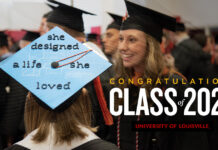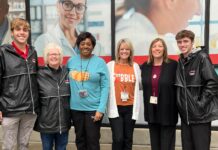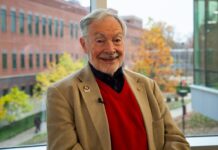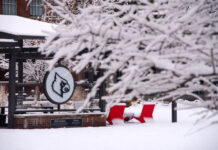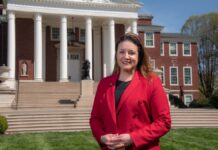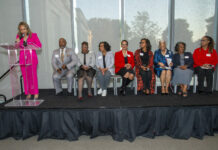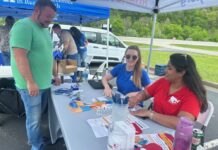They’re Space Camp counselors — at Space Camp Turkey (SCT), that is.
I’m pretty sure everyone reacts the same when I say I’m working at (space camp) and it’s in Turkey — they all seem rather flabbergasted, said UofL senior Emory Williamson via e-mail.
Under the U.S. Space Camp license, SCT is in Izmir, Turkey, the country’s third most populous city. There also are space camps in Canada, Belgium, and, of course, Huntsville, Ala.
Williamson; Katie Kubitskey and Amy Fossaluzza, 2010 graduates; and senior Brittany Wood ended up working at SCT because Kubitskey and Fossaluzza studied in Turkey last year and made friends with a former SCT counselor.
They thought about it again this winter when they began looking for summer jobs. Their Turkish friend referred them to the SCT international programs manager, Beth Mitchell-Gencel.
Beth…turned out to be from Louisville, Kubitskey said. From then on, it was fate. Mitchell-Gencel, a UofL alumna, has worked at SCT since her initial six-month appointment by the Space Camp foundation as international space camp liaison in 2000 turned into a full-time job offer from the camp director.
While none of the UofL friends had much experience with space before this summer, they said they are enjoying learning about the subjects they teach — U.S. space programs, the anatomy of a space shuttle, space suits and how astronauts live in space. They also enjoy the simulators — one that mimics weightlessness — team-building games and rocket launches that are part of a camper’s week.
I honestly didn’t know what to expect, Williamson said. Three months in another country teaching children who aren’t native English speakers about subjects that I’m not overly familiar with was a bit daunting at first. But as the summer (has) progressed, I’ve become more and more confident in my skills as a counselor. The work can be challenging at times, but if your work isn’t challenging, then why do it?
Don’t think that it’s all work and no play for the counselors. While the work day is long, there is still time to travel and to explore Izmir and learn about its culture.
When they’re in Izmir, the counselors go to the beach a lot, Fossaluzza said. The city sits on the Gulf of Izmir, a gulf of the Aegean Sea.
Cheap flights make it easy to visit other parts of Turkey, she added, noting that she spent a weekend recently visiting friends in Istanbul, where she and Kubitskey studied last summer through the Kentucky Institute of International Study.
The two cities are vastly different, she observed, something she said she didn’t expect before she left the United States.
Istanbul is another world compared to Izmir, she said. It feels completely different — much more European….Izmir seems to be much more conservative than Istanbul… something that’s noticeable even in the way women dress in both cities, and Izmir has much fewer tourists.
It has been really fascinating observing differences, she said.
Williamson spent the last weekend in June in Cairo, Egypt, with two other counselors touring the pyramids, the Nile and other cultural sites.
It was an incredible experience, he said. But, honestly, working with new kids each week is the best experience.
The others agreed.
My favorite part of the job so far is rediscovered every week when we are graduating another group of kids, saying where our children are from — in each group, there are kids from up to 10 different countries, Kubitskey said. Some weeks, we will have taught kids from Israel, Turkey, Azerbaijan, China, Spain, Lebanon, etc., all in the same group. (We do our best to keep them speaking English.) Despite all of the conflicts that surround this part of the world, Space Camp is unbiased and is willing to bring kids together from all over the world to share their love for science.
The kids are from so many different places … they all speak different languages and yet are able to come together, get along, and most importantly — learn, Wood echoed.












